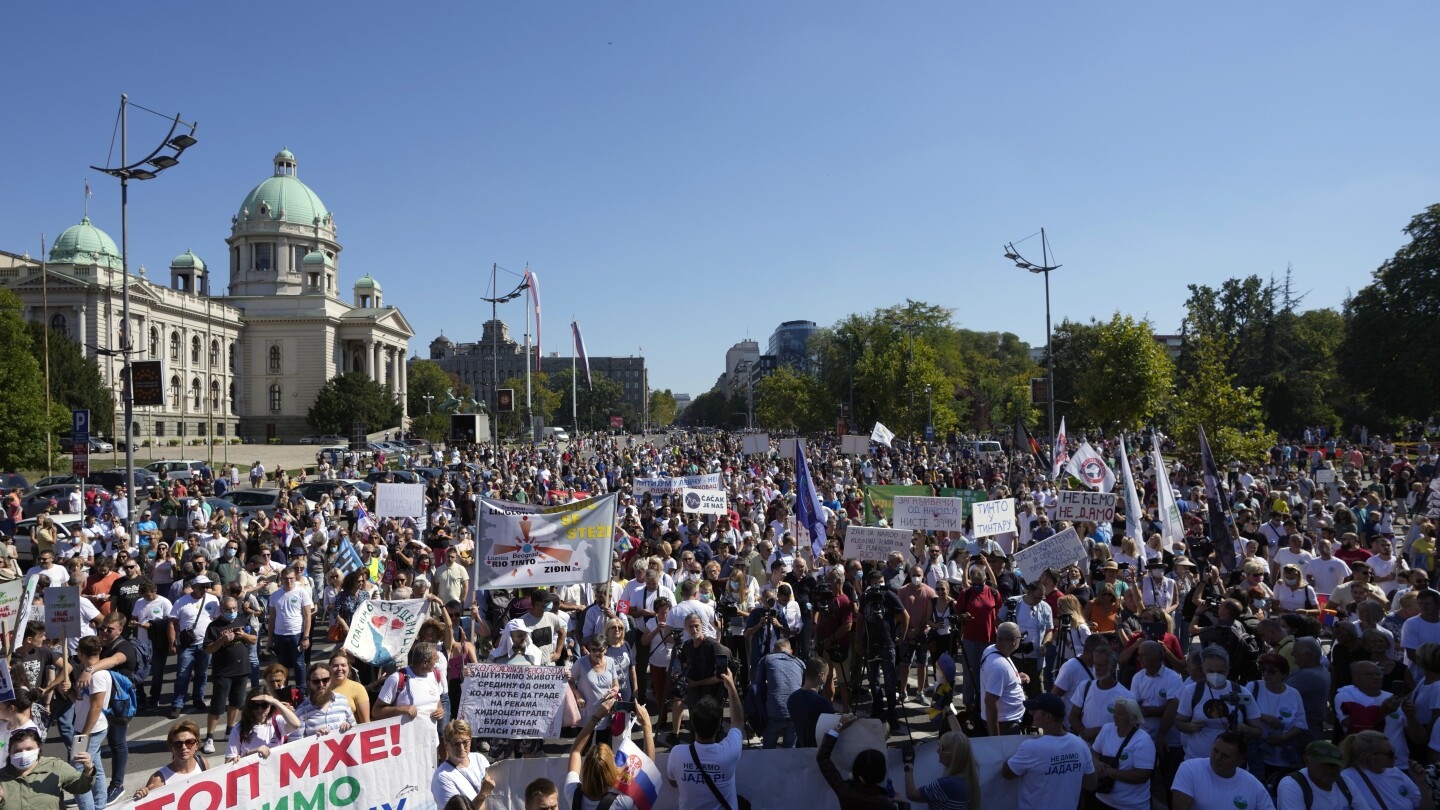BELGRADE, Serbia (AP) — German Chancellor Olaf Scholz will visit Serbia later this week to discuss a tentative deal with the Balkan country for the controversial excavation of lithium, a critical substance in making batteries for electric vehicles, officials from both states confirmed Wednesday.
Germany, the largest carmaker in Europe, is seeking to secure lithium for its electric vehicle makers as the European Union struggles to reduce its dependence on imports from China.
China currently dominates the supply chain for lithium-ion batteries.
Serbia’s constitutional court earlier this month overturned a previous ruling to cancel a $2.4 billion excavation project launched by British-Australian mining giant Rio Tinto in western Serbia, which is believed to be the the largest lithium discovery in Europe.
The Serbian government’s decision to cancel the excavation plans came after thousands of protesters in Belgrade and elsewhere in Serbia in 2021 blocked major roads and bridges to oppose Rio Tinto’s plans because of potential hazards to the environment. The protests were the biggest challenge yet to the increasingly autocratic rule of Serbian President Aleksandar Vucic.
The protest leaders have pledged to restart their protests if the government’s new lithium excavation plans are implemented. Serbia’s interior minister said that police will not allow any more blockades of roads or railway lines.
German government spokesperson Steffen Hebestreit said Scholz and European Commission vice president Maros Sefcovic will attend a “critical raw materials summit” on Friday where a memorandum of understanding between the EU executive and Serbia on a “strategic partnership” on sustainable raw materials, battery supply chains and electric vehicles will be signed.
There will also be a letter of intent signed by the Serbian government and several companies related to the lithium mining project, he said.
The memorandum will contain a “commitment to high environmental and sustainability standards,” Hebestreit told reporters in Berlin. He noted that the Serbian government has responded to criticism from the region and said it is “good and important” that there are now higher standards for the project.
Vucic and other Serbian officials have said the lithium excavation will go ahead if Germany and other EU states build factories for their car batteries in Serbia, rather than directly exporting raw materials to those countries.
“I don’t see what’s wrong with that,” Serbian Prime Minister Milos Vucevic said referring to the tentative deals that are to be signed. “That means we have an advantage in our hands.”
Scholz will be a rare EU leader to visit Belgrade as President Vucic has mostly been shunned by Western officials because of his close relations with China and Russia despite the war in Ukraine, an increasing crackdown against independent media, accusations of rigged elections and veiled military threats against neighboring states.
——
Associated Press writer Geir Moulson contributed to this report from Berlin.

